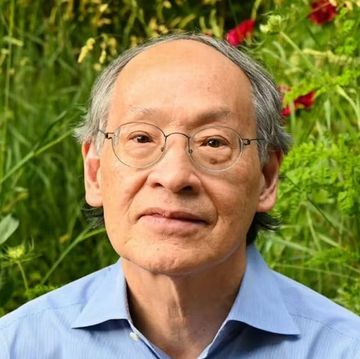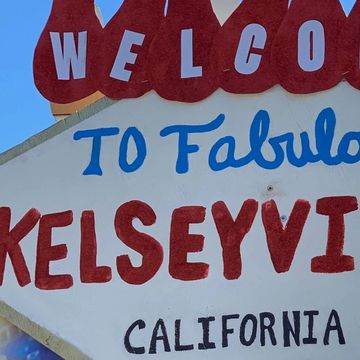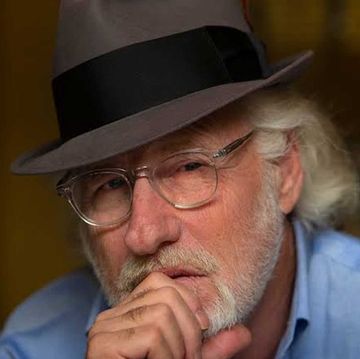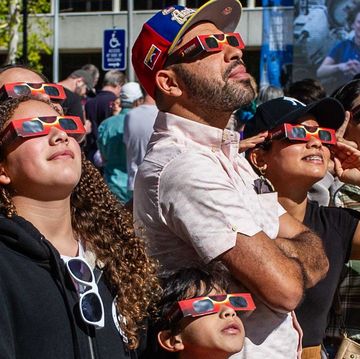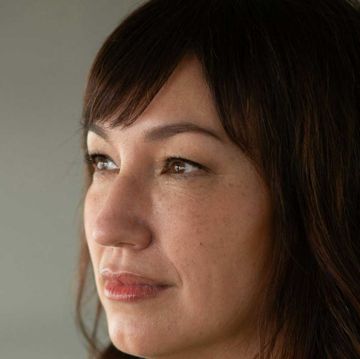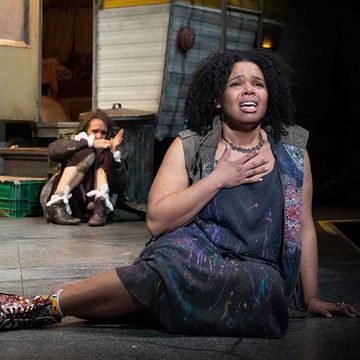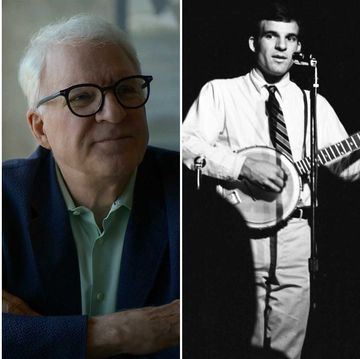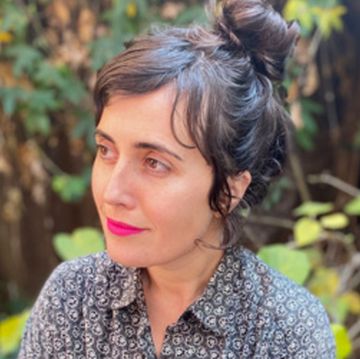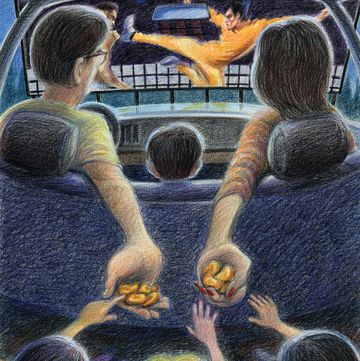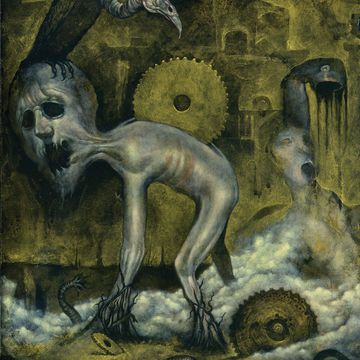On Sundays, Fancy Cuts in North Long Beach is a bustling mash-up of sounds. In the front, there’s the buzz of a one-clip fade and the crinkle of highlight foil. Toward the back, there’s the rinse-splash of a man getting his hair washed while a woman sits silently beneath the hum of a clear, domed hair dryer. But what stands out is the voices—of six stylists and their clients—that float through the room like a breeze, carrying notes of English, Spanish, Tagalog, Vietnamese, and Khmer, which is not uncommon here.
Lending some harmony to all of it is Davy Tok, owner of the salon. She is in her early 50s, but with her thick black hair and dimpled smile, she looks a decade younger. She’s often dressed in fitted jeans, a black top, and a navy apron embroidered with the salon’s name.
Like many locals, Tok is an immigrant. Her family fled the Khmer Rouge and the killing fields and then were sponsored out of a refugee camp in Thailand. “We came to the United States in the ’80s,” Tok says in her Khmer-inflected English that makes every sentence a song. “I was about eight or nine years old, so I don’t remember much.”
This article appears in Issue 24 of Alta Journal.
SUBSCRIBE
Tok opened Fancy Cuts in a strip-mall storefront in 1994. She was in her early 20s, recently married, and raising a three-year-old son. “Fancy Cuts was a big risk,” she says. “I was scared and excited when it opened. I didn’t know if it would last, but I wanted to try.”
Nearly three decades later, Fancy Cuts is a pillar of the community. “My business is not just about money,” Tok says between clients. “It’s about making people happy. I make people look good and feel good, and that makes me feel good.”
I grew up on the Northside, as the neighborhood is also known, and I’ve been coming to Tok since I was young. Holiday cards and pictures of families, weddings, and graduations decorate her mirror. My college graduation photo used to be up there, but it was taken down after the shop was remodeled about two years ago. Tok and the other women of Fancy Cuts have been the prologue to every important chapter of my life. They’ve prepared me for my senior prom, job interviews, readings, my first date with my wife, our wedding, birthday parties for my boys, and, more recently, the funerals of my mom, dad, and older brother.
“I feel blessed to have a business that has served four generations of families. People bring their kids, and now their kids bring kids,” Tok says.
The secrets to Fancy Cuts’ longevity are simple. Ample parking (a rarity in Los Angeles). Ridiculously low prices: men’s cuts are $10, and women’s are $15. And above all, great service. Five of the six stylists have been working here for more than 20 years and know most customers by name. The business has helped Tok and her husband buy a home in the suburbs of Cerritos and put their two kids through college.
I’ve seen Tok prepare Mexican American girls for their quinceañeras and Pinays for their debutante balls. I’ve watched whole wedding parties have their hair done. And in late winter and early spring, I’ve witnessed entire families exit Fancy Cuts looking their best for Choul Chnam Thmey and Tet, the Cambodian and Vietnamese New Year celebrations. Everyone leaves Tok’s salon with a smile.
That’s what Tok does; she helps North Long Beach—the “other side” of the seventh-largest city in California—feel good about itself. The Northside is the type of neighborhood where a Buddhist temple stares across the street at a Warehouse Shoe Sale sneaker joint. If it has any landmarks, it’s the 20 or so massive white tanks at the oil storage facility off Cherry Avenue and Paramount Boulevard. According to data compiled in 2014 and 2018, the 95,000 residents here are 58 percent Latinx, 20 percent Black, and 11 percent Asian. One in three people was born outside the United States, and the median annual household income is $64,000. Twenty years ago, a Modern Language Association study found North Long Beach to be one of the most linguistically diverse areas in the nation, with about 40 spoken languages.
On a recent Sunday, I visited Fancy Cuts to get haircuts for myself and my two sons. Owing to the pandemic, it was my first time back in nearly three years. Tok greeted me as if I’d been gone just a few weeks. “Hello, Paul,” she said, stretching out the pronunciation of my American name as if it were a piece of taffy. I put my hands together, brought them to my forehead, and bowed. The stylists doted on my boys, patting their heads as they jumped into their seats, and commented on how tall they’d grown. “So handsome,” one said. “So big now,” remarked another.
My parents are gone, and I live a few miles away in another city now, so I don’t come to North Long Beach often. Yet seeing Tok reminded me of why I’d wanted to come back to Fancy Cuts with my sons. A nice, affordable haircut, sure. But more important: a sense of place, a sense of home. We left with smiles on our faces.•
Ky-Phong Tran and his family fled to the United States at the end of the Vietnam War. A Jack Hazard Fellow, a Bread Loaf Scholar, and a Voices of Our Nations Arts Foundation Scholar, he has been named a finalist in short fiction contests by Narrative magazine and the Asian American Writers’ Workshop. Raised on the Northside of Long Beach, he writes about the refugee experience, basketball, and the underbelly of American life.



